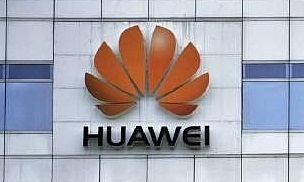

Chinese networking giant Huawei has penned one of its biggest contracts in the UK to date, signing a five-year deal with Telefonica UK, better known as O2.
The agreement means Huawei will manage the planning and deployment of O2’s mobile core network, with 56 Telefonica UK employees moving over to the Chinese firm. Huawei will also gain the services of 62 contractors working on O2’s current project.
The spokesperson would not reveal the value of the agreement.
Victor Zhang, CEO of Huawei UK, said the deal marked its “first major managed services agreement in the UK.”
“Huawei works with Telefonica in a number of markets around the world and today’s agreement means we are extending our relationship to the UK,” Zhang added. “Today’s announcement is an important first step in building a world-class managed services capability in the UK. The agreement is a long-term strategic commitment from both Huawei and Telefonica UK to deliver the best in class management of a core network.”
Huawei will be hoping deals like this boost its results. In April, the company reported a 53 percent drop in profits, saying it was working in a number of “intensely competitive” markets, “in terms of price, functionality and service quality as well as the timing of new product and service development.”
The company is seen as a major threat in the networking space, in particular by Cisco, whose CEO John Chambers has recognised Huawei as a formidable competitor.
Are you fluent in the languages of the Internet? Try our quiz!
Apple reportedly reassigns Siri development to executive behind Vision Pro after acknowledging delays to much-hyped…
TikTok parent ByteDance, a major AI player in China, releases open technique for training LLMs…
Norwegian man files data-protection complaint after ChatGPT falsely states he murdered two of his sons,…
All Cybertrucks manufactured between November 2023 and February 2025 recalled over trim that can fall…
As Musk guts US federal agencies, SEC issues summons over Elon's failure to disclose ownership…
Moonshot project Taara spun out of Google, uses lasers and not satellites to provide internet…